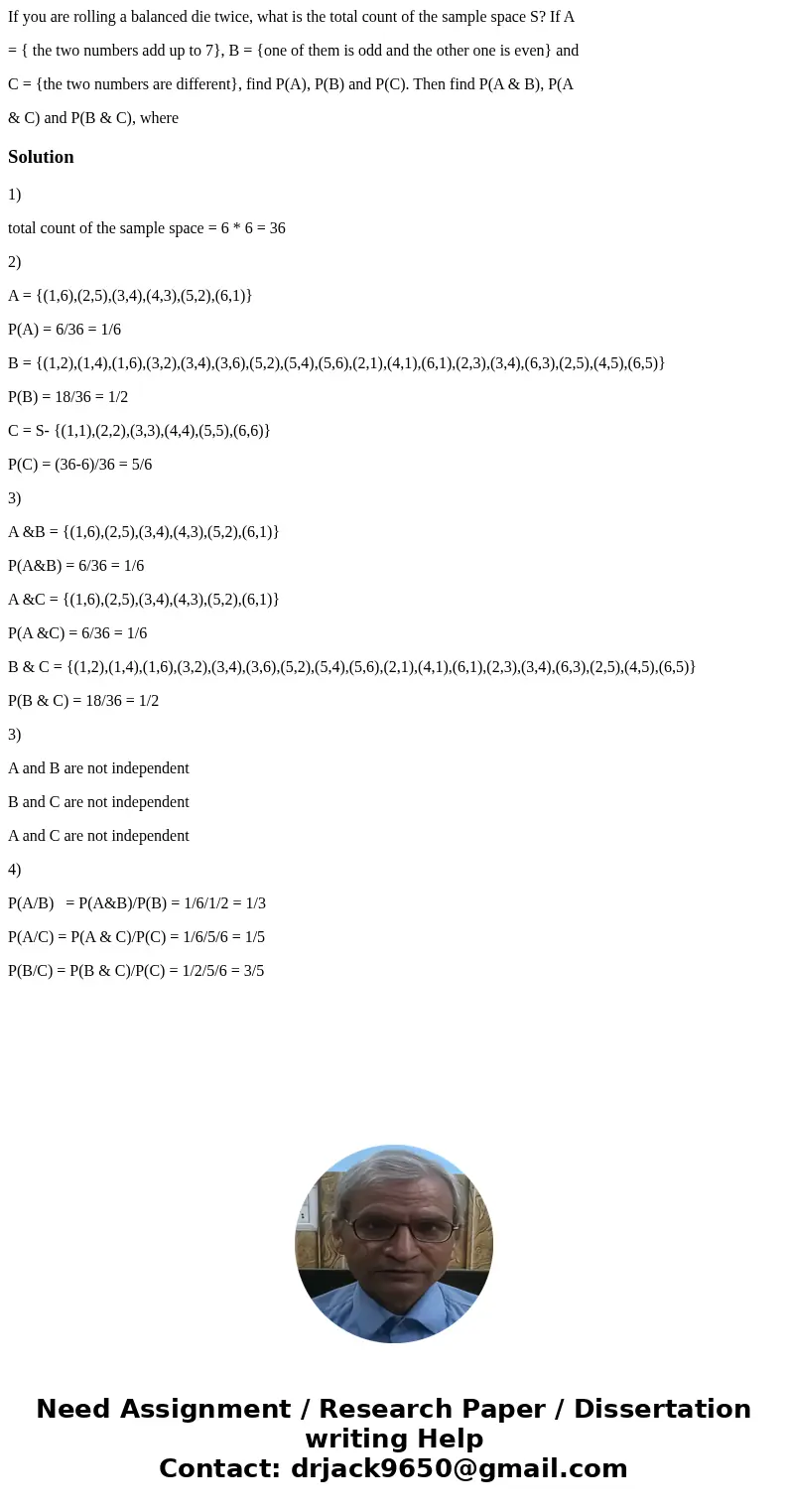If you are rolling a balanced die twice what is the total co
If you are rolling a balanced die twice, what is the total count of the sample space S? If A
= { the two numbers add up to 7}, B = {one of them is odd and the other one is even} and
C = {the two numbers are different}, find P(A), P(B) and P(C). Then find P(A & B), P(A
& C) and P(B & C), where
Solution
1)
total count of the sample space = 6 * 6 = 36
2)
A = {(1,6),(2,5),(3,4),(4,3),(5,2),(6,1)}
P(A) = 6/36 = 1/6
B = {(1,2),(1,4),(1,6),(3,2),(3,4),(3,6),(5,2),(5,4),(5,6),(2,1),(4,1),(6,1),(2,3),(3,4),(6,3),(2,5),(4,5),(6,5)}
P(B) = 18/36 = 1/2
C = S- {(1,1),(2,2),(3,3),(4,4),(5,5),(6,6)}
P(C) = (36-6)/36 = 5/6
3)
A &B = {(1,6),(2,5),(3,4),(4,3),(5,2),(6,1)}
P(A&B) = 6/36 = 1/6
A &C = {(1,6),(2,5),(3,4),(4,3),(5,2),(6,1)}
P(A &C) = 6/36 = 1/6
B & C = {(1,2),(1,4),(1,6),(3,2),(3,4),(3,6),(5,2),(5,4),(5,6),(2,1),(4,1),(6,1),(2,3),(3,4),(6,3),(2,5),(4,5),(6,5)}
P(B & C) = 18/36 = 1/2
3)
A and B are not independent
B and C are not independent
A and C are not independent
4)
P(A/B) = P(A&B)/P(B) = 1/6/1/2 = 1/3
P(A/C) = P(A & C)/P(C) = 1/6/5/6 = 1/5
P(B/C) = P(B & C)/P(C) = 1/2/5/6 = 3/5

 Homework Sourse
Homework Sourse